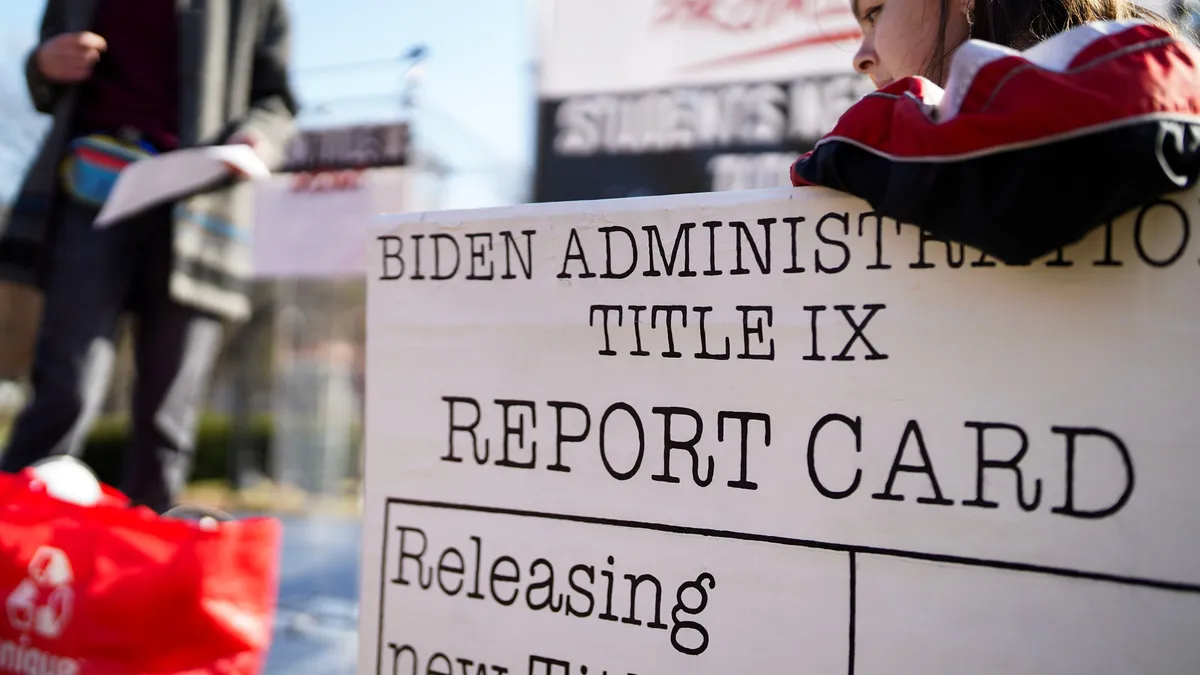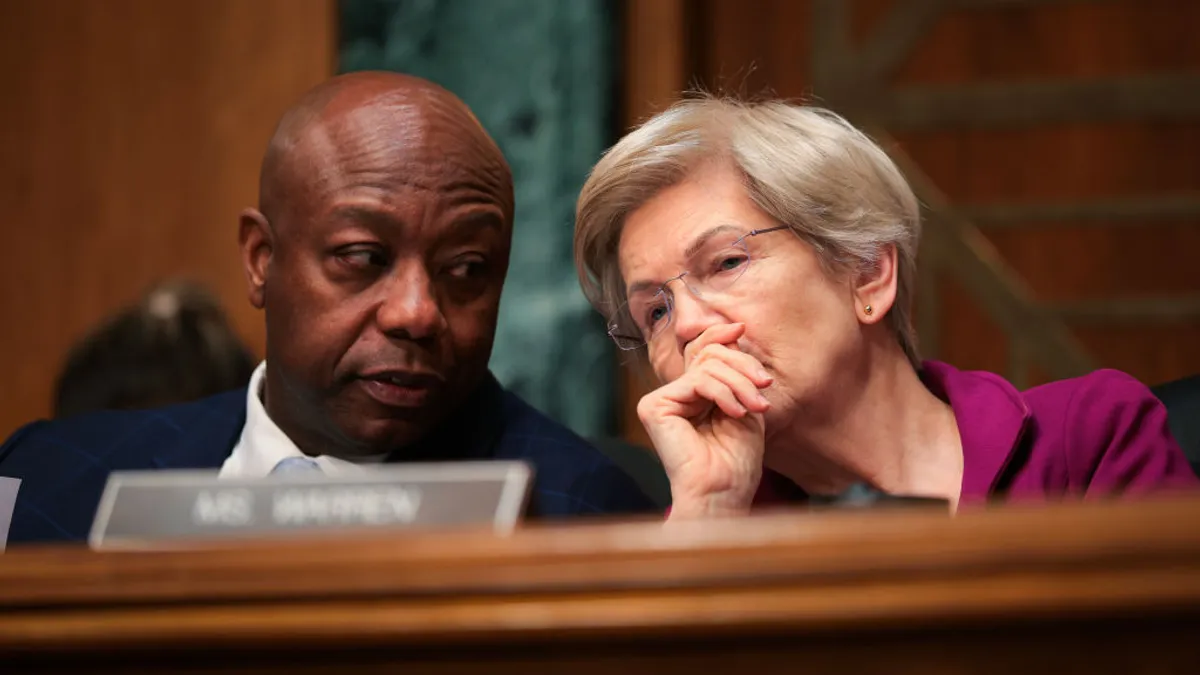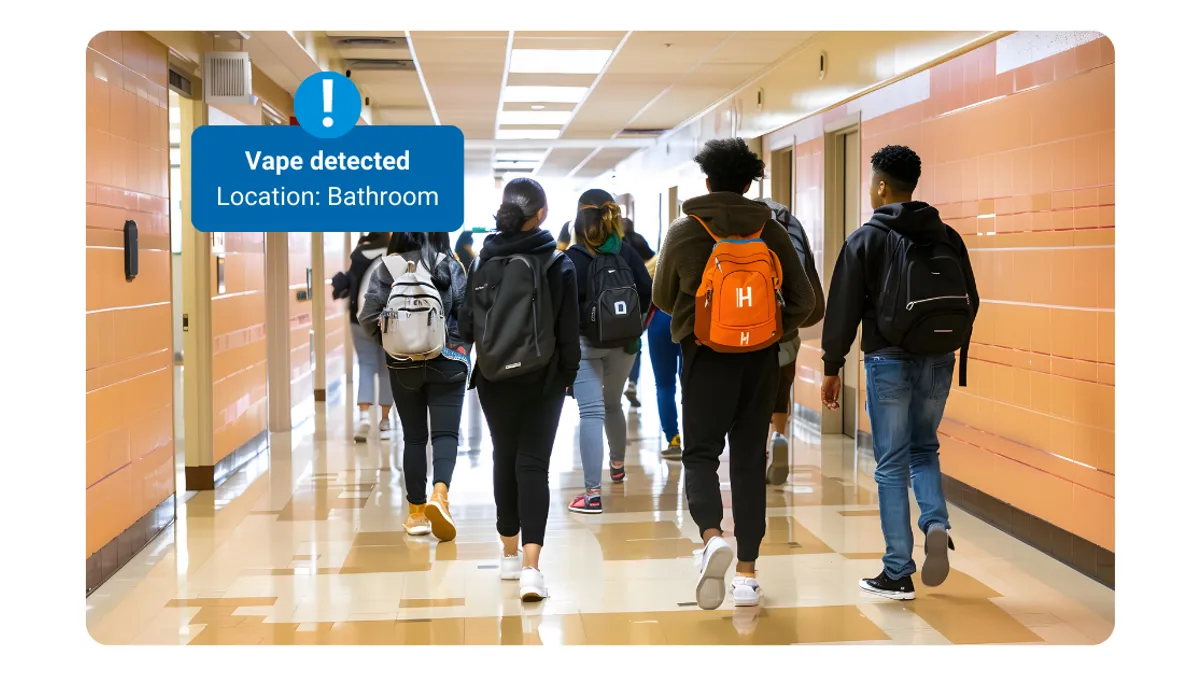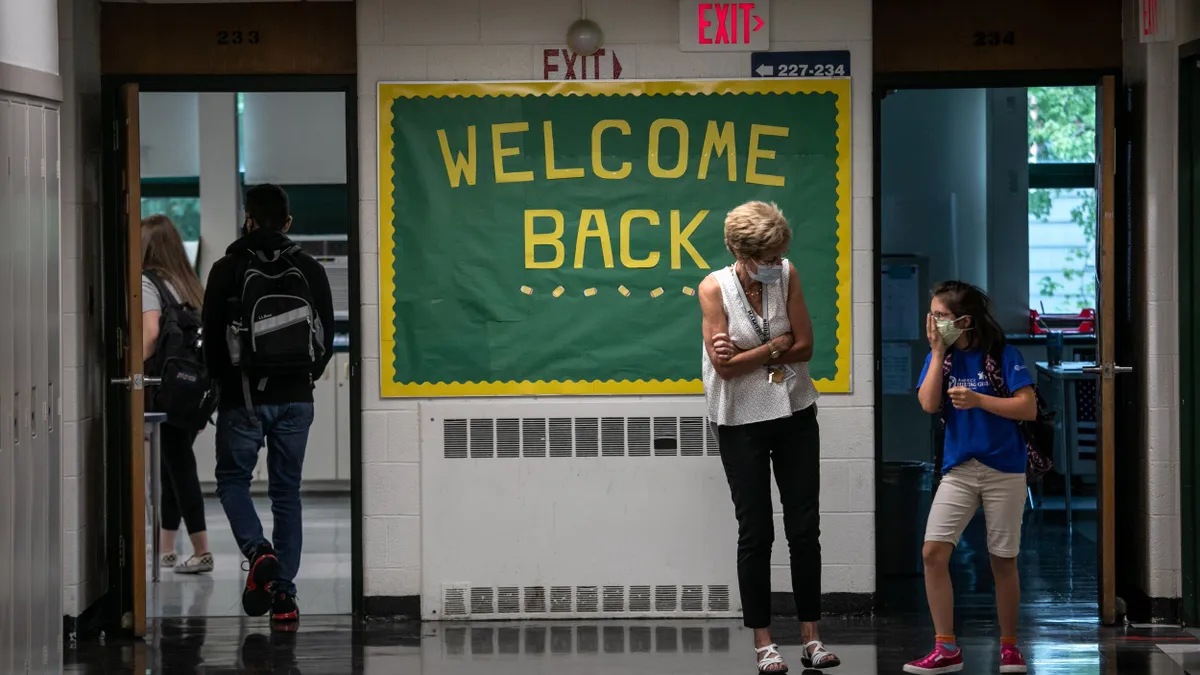Federal complaints against school districts for not implementing the U.S. Department of Education's 2024 Title IX rule are trickling in weeks after the Aug. 1 rule protecting LGBTQ+ students went into effect.
The rule, which was met with widespread litigation from Republican-leaning states after its release in April, has been enjoined in at least 26 states and hundreds of individual schools nationwide, including in Democratic-leaning states. In those states and schools, the former Title IX rule from 2020 remains in effect, creating a hodgepodge of policies that left districts confused in the days and hours leading up to the Aug. 1 enforcement date.
“It’s a very fluid legal environment still,” said Catherine Lhamon, assistant secretary for the Office for Civil Rights at the U.S. Department of Education, in comments made on the Aug. 1 implementation date.
Amid that legal environment, LGBTQ+ organizations have called for federal investigations into districts in areas without statewide injunctions that still chose not to implement the rule.
School districts hesitant after court decisions
Until an injunction from a Kansas federal district court came down in July, Scott Kelly, a school board member for Wisconsin's Kettle Moraine School District, was prepared to implement the 2024 Title IX regulations. At least four individual schools across the district, which serves 3,400 students across 12 schools, were implicated in a court order enjoining the rule in over 400 schools nationwide.
However, the 2024 Title IX rule remains in effect across the remainder of the district. Despite this, the board chose not to change its Title IX policies, including in schools where the rule is technically in effect.
"Prior to this Kansas case, I was prepared to propose additions to our current policies that would have complied with the letter of Title IX," said Kelly during a July 16 school board meeting. Others agreed.
"So this is evolving. This is changing," said Carl Millard, another board member for the district. "I think the safest thing at this point is just hold on. Let's not change anything, and let's just let this thing play out, and then we'll move from there."
The decision, however, led two Wisconsin-based LGBTQ+ advocacy organizations to file a Title IX complaint against the district with OCR on Sept. 9. Kettle Moraine School District's lack of a 2024 policy led to a hostile environment, say Fair Wisconsin and GSAFE in their complaint, citing statements from transgender students and their parents at public school board meetings that "highlighted a pattern of ongoing hostility."
Similar complaints have been filed against Liberty Elementary School District No. 25 in Maricopa County, Arizona, and Laurel School District in New Castle, Pennsylvania — both of which have not adopted the 2024 Title IX rule despite it being technically enforceable in schools.
Neither state has an injunction in place against the regulation. However, complicating things further in Arizona, a separate lawsuit resulted in a temporary block preventing the Education Department from interpreting Title IX to protect LGBTQ+ students in Arizona schools.
Complaints filed with the OCR, if opened for investigation, can take a few months to a few years to complete.
Confusion in districts with school-specific injunctions
LGBTQ+ advocates say that districts that aren't following the new Title IX rule where it is legally enforceable are shortchanging students of their civil rights. These advocates are urging students to assert their rights, including by filing lawsuits and civil rights complaints against schools and pursuing state remedies.
"School districts need to be very thoughtful about how they're moving," said Brian Dittmeier, director of public policy for GLSEN. "I think it's a very important point to remember that students have rights and that there are different avenues to pursue justice in their schools."
Dittmeier says an ideal outcome of the Title IX complaints filed across the three states would include assurances of compliance with the 2024 rule in places where it is legally enforceable.
"If a school district is asserting that they are not going to enforce protections for LGBTQ youth or for trans youth in particular, that sends a message to the LGBTQ youth or the trans youth in the district," said Dittmeier. "And that's a message that needs to be corrected, because all students should have access to a safe and supportive school."
Kelley Dupps, inclusive policy advocacy manager for GLSEN's Arizona chapter, said that school boards choosing to not adopt the 2024 rule despite it being in effect in some or all of its schools could contribute to a negative school climate for LGBTQ+ youth, such as bullying, harassment or assault.
Kettle Moraine School District in Wisconsin said last week it is aware of the OCR complaint. The district said that it "supports all students and families and does not tolerate bullying," according to local news reports.
The district asserted that it didn't review the final Title IX rule because of the Kansas injunction, which the district believes enjoins the rule in its schools. It did not comment further despite multiple requests from K-12 Dive.
That injunction — which enjoins the rule in a few individual schools, while leaving it in effect in the remainder of the district — "doesn't erase the obligation of school board members to create a safe learning environment for students across the district," said Dittmeier.
Kettle Moraine School District's decision to not review the rule in light of recent court decisions reflects a much larger issue nationally of confusion and misinformation around the 2024 Title IX rule amid an evolving legal landscape.
For example, Wisconsin's Oshkosh Area School District earlier this month adopted the 2024 Title IX rule in most of the district's schools where it is legally in effect, walking back an earlier decision to not implement it.
"I think it's an important step to recognize that there is a risk when a school district is not complying with the law," said Dittmeier. "That people in the community and advocates for marginalized communities will stand up and demand compliance with the law."







 Dive Awards
Dive Awards















